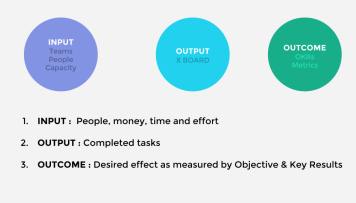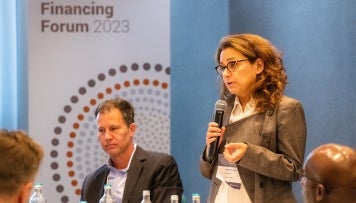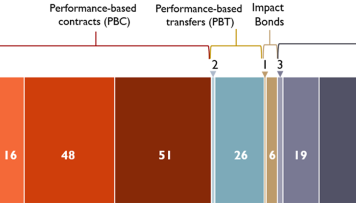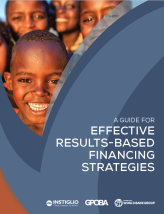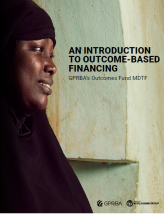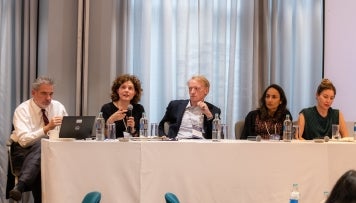
By Mara Airoldi, Academic Director at the Government Outcomes Lab (GO Lab)
The idea of Outcome-Based approaches, including Results-Based Finance (RBF), is pleasantly straightforward: let’s link payments to the achievement of specific results or outcomes, rather than the inputs or activities. Yet the implementation of these approaches is marred with challenges. For instance, it is often difficult to define result metrics and performance indicators, to manage payment mechanism or to ensure long term sustainability.
Over the past twenty years, I have worked with organisations interested in using their resources to achieve outcomes. So, what are my top three recommendations on how to foster the benefits of these approaches?
- Start from the problem you want to solve and think long term
It might sound clichéd, but it is always a good idea to start from the problem you want to solve and the long-term plan on how to solve it. This means thinking bigger and beyond the duration of the program being funded. We need to ask ourselves what sort of impact we want to achieve, and the difference we want to make in 5-10 years.
Ultimately, we must consider what the underpinning ‘theory of change’ of the program is. Or in short, what makes us think that the program will lead to different results. The articulation of the theory of change should include both a good understanding of the intervention being funded (e.g., giving access to clean water or to early childhood education), as well as the rationale for using an outcome-based approach instead of a traditional grant or loan (e.g., building competencies, sharing risks). A revealing question to help in identifying the rationale for using an outcome-based approach is to consider what should happen at the end of the program.
- Cultivate a learning culture, share data and insights.
Even when there is strong evidence that an intervention is effective, ‘how’ to make it work in a particular time and in a specific geography is part science and part art, requiring continuous learning, ingenuity, and adaptability.
Outcome-based approaches and RBFs are, by definition, a data rich environment as they require the measurement of results and usually a good monitoring and evaluation process in place throughout the program. Yet there is so much more those data could tell us, if only we gathered them systematically, using shared concepts and definitions, and compared them across time and geographies.
GO Lab promoted the launch of a global data collaboration called INDIGO, which stands for “International Network for Data on Impact and Government Outcomes”. This collaboration brings together data stewards, researchers, and Outcomes based approach practitioners who wish to share their data, insights, and learning.
It is an open data platform which currently maintains several datasets and community events to generate insights. While the main dataset is dedicated to impact bonds, a particular outcome-based instrument, the INDIGO community is exploring ways to include all outcomes-based approaches. For instance, a prototype dataset for outcome-based approaches in the pipeline has been launched, as well as a machine-learning assisted database of searchable empirical evidence on these instruments (SyROCCo).
- Support Governments and local communities in building the competencies to define results, monitor delivery, and learn
Governments should be engaged early in the design of an RBF because they are the key actors and, in several outcomes-based approaches, responsible for paying for outcomes, if achieved.
Therefore, it would make sense that they have a strong voice in defining the desired outcomes, assessing whether progress towards achieving those outcomes is taking place, and how much resources is worth spending.
In 2022, with the support of Social Finance, we published a framework to describe the competencies needed in an ecosystem, including governments, to engage in outcome-based approaches. The framework has been at times seen as an assessment tool. Often readers immediately approached it with a “compliance” hat, as a checklist. I think this is a mistake. The framework is instead a useful guidance of the competencies partners in an outcome-based partnership can expect to develop over time. With this “pedagogical” hat, the framework becomes a tool to be intentional on a learning journey, to ask questions and guide reflection. It could hence be an inspiring tool, instead of an alienating one.
Outcome-based approaches and RBF are usually deployed where simpler mechanisms are failing to deliver results and where a change of behaviour of individuals, organisations of entire systems is needed. It should not surprise us that they may be more challenging. Yet, they can create the space for learning on how to deliver results in these challenging contexts. Like all learning journeys, intentionality and reflection are needed. Like all learning journeys, it helps to compare notes and build on the experiences of fellow travellers.
Conversation with Mara Airoldi - GO Lab
